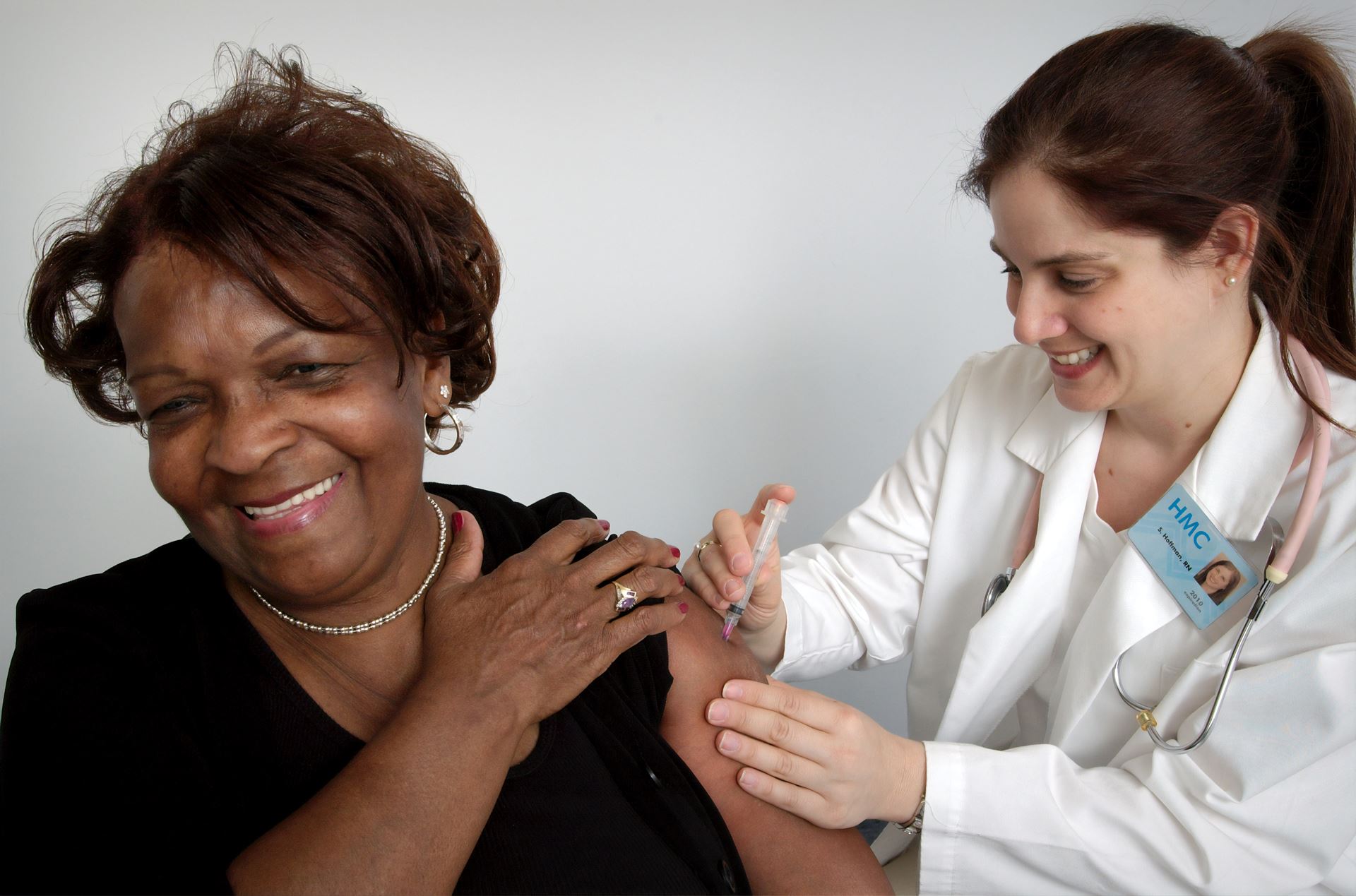Vaccinations
Does Age Affect The Risk Of Flu?
Yes. If you are aged 65 years or over or you are at higher risk
Who is at risk?
- If you are aged 65 years or over or if you are on regular inhaled steroids
- If you have a chronic respiratory disease (including asthma)
- If you have chronic heart disease
- If you have chronic renal disease
- If you are diabetic
- If you have a weak immune system
- If you live in a long-stay residential or nursing home
- If you have a chronic liver disease
- If you are a carer

Do I Need To Be Protected Against Pneumococcal Infection?
Everybody aged 65 and over should now be immunised to help protect them against pneumococcal infection which can cause diseases such as pneumonia, septicaemia (blood poisoning) and meningitis. Please phone the surgery during September to make an appointment if the above applies to you.
Shingles
Shingles is an infection that causes a painful rash. Get advice from 111 as soon as possible if you think you have it. The first signs of shingles can be: A rash will usually appear a few days later. In rare cases shingles can cause pain without a rash. Usually you get the shingles rash on your chest and tummy, but it can appear anywhere on your body including on your face, eyes and genitals. The rash appears as blotches on your skin, on 1 side of your body only. A rash on both the left and right of your body is unlikely to be shingles.Check if you have shingles
MENACWY for young adult
The MenACWY vaccine helps protect against life-threatening illnesses like meningitis and sepsis. It’s offered to teenagers in school, but can be given up to the age of 25 if it's been missed.
PERTUSSIS ( whooping cough) for pregnant ladies
Whooping cough (pertussis) rates have risen sharply in recent years and babies who are too young to start their vaccinations are at greatest risk.
Young babies with whooping cough are often very unwell and most will be admitted to hospital because of their illness. When whooping cough is particularly severe, they can die.
Pregnant women can help protect their babies by getting vaccinated – ideally from 16 weeks up to 32 weeks pregnant. If for any reason you miss having the vaccine, you can still have it up until you go into labour.
Importance of childhood immunisations
Why vaccination is important and the safest way to protect yourself
Vaccines are the most effective way to prevent many infectious diseases. This page explains how vaccines work, what they contain and the most common side effects.
Page created: 15 March 2024
